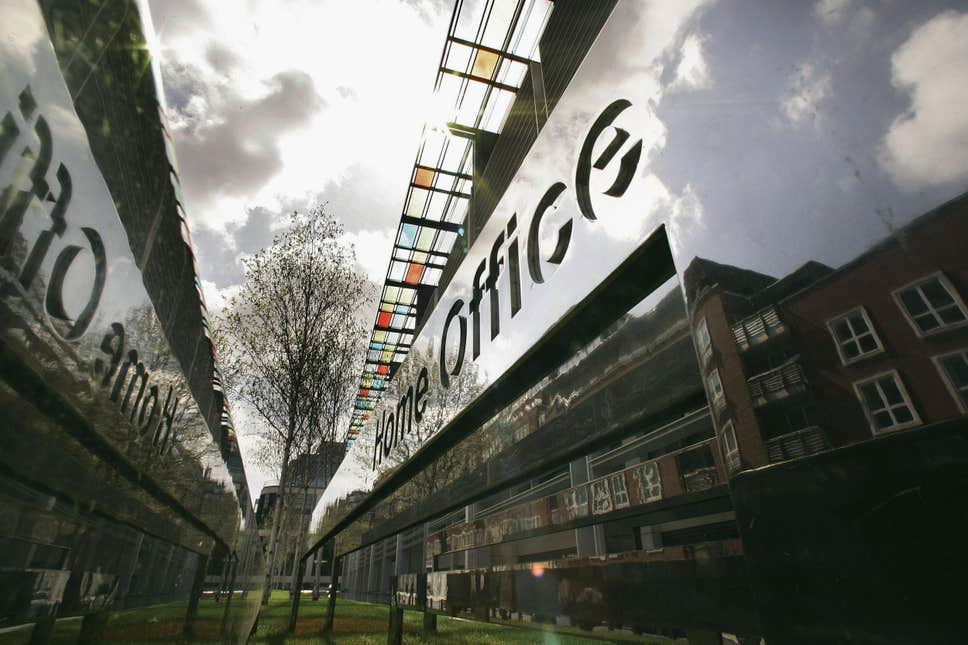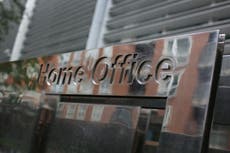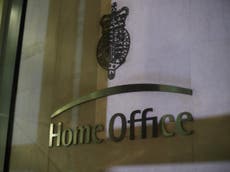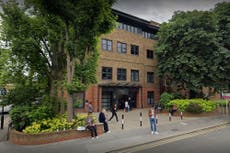Migrants forced to travel 85 miles for Home Office appointments as coronavirus cases soar
Exclusive: Vulnerable asylum seekers having to take long journeys on public transport despite lockdown measures – only to attend video link interviews from government buildings

Your support helps us to tell the story
From reproductive rights to climate change to Big Tech, The Independent is on the ground when the story is developing. Whether it's investigating the financials of Elon Musk's pro-Trump PAC or producing our latest documentary, 'The A Word', which shines a light on the American women fighting for reproductive rights, we know how important it is to parse out the facts from the messaging.
At such a critical moment in US history, we need reporters on the ground. Your donation allows us to keep sending journalists to speak to both sides of the story.
The Independent is trusted by Americans across the entire political spectrum. And unlike many other quality news outlets, we choose not to lock Americans out of our reporting and analysis with paywalls. We believe quality journalism should be available to everyone, paid for by those who can afford it.
Your support makes all the difference.People are being forced to travel as far as 85 miles to attend Home Office appointments during the lockdown, prompting critics to claim the government is prioritising “distrust” of migrants over public health.
Ministers are being urged to act after it emerged vulnerable asylum seekers and visa applicants have had to take long journeys on public transport in recent weeks in order to comply with Home Office rules.
In March, substantive asylum interviews – during which the Home Office gathers information to determine whether someone should be granted asylum in the UK – were paused in response to the pandemic.
Biometric appointments, where UK visa applicants submit their fingerprints as part of the application process, were also suspended during the first lockdown as visa application centres closed.
However, both have since resumed and are continuing to take place throughout the new lockdown, despite soaring rates of coronavirus infection.
Shadow immigration minister Holly Lynch urged the Home Office to rethink its approach, saying: “These journeys put public health at unnecessary risk when alternatives are available. The government is asking us to stay at home, so it must also play its part."
In the case of asylum interviews, individuals are currently being required to travel to Home Office buildings, only for the interview to then take place via video link – often with the interviewer joining from home.
A letter to an asylum seeker instructing them to attend an interview this month, seen by The Independent, states: “Your asylum interview will be conducted by video conferencing. This means that you may not be in the same room as the interviewing officer or interpreter (if you need one) but you will be able to see them.”
Immigration lawyer Christopher Desira said one of asylum clients was required to travel 25 miles this week to sit in an isolated room on video, while the Home Office interviewer asked questions from their home, and the interpreter and lawyer were present on separate video connections.
“This set up does not work well and there were a lot of misunderstandings because of poor connections,” he said.
Mr Desira said the Home Office should give asylum seekers the option of joining the call from their government accommodation or setting up a connection from their solicitor’s office, with social distancing in place.
“My view is that they don’t trust that the applicant won’t receive help or prompting during the interview, so they prefer that the applicant is under their gaze,” he said.
“If it wasn’t for that inherent suspicion there are ways to work around this, but the Home Office is putting distrust over public health.”
Melissa Rutherford, a solicitor in Glasgow, said she has received eight letters from the Home Office in the past week instructing clients to attend asylum interviews. Before this, she had only received one such letter since 23 March.
Ms Rutherford said her clients, many of whom have experienced trauma, were subsequently having to travel across Glasgow on public transport, with one vulnerable woman having to make a two-hour trip on buses to Edinburgh.
“Lots of them are understandably very anxious and worried, particularly because the interviews are on video,” she said. “The interviews are as early as 8:30am. Many of them don’t know where they’re going, don’t speak the language and have young kids. It’s horrific.
“I was completely shocked when I received the letters. They could have started interviewing in the summer when things seemed to be going back to normal, but they didn’t – and now all of a sudden it’s lockdown and they’re doing these video link interviews. They’ve had 10 months to think about it and work out what to do. It’s really not good enough.”
Lisa Matthews, coordinator at Right to Remain, said that while it was important to address what she called the appalling waiting times for asylum interviews, that “should not be at the expense of individual and public health.
She suggested that public buildings could be repurposed so that asylum seekers could access video link equipment locally, without having to travel long distances on public transport, and said that above all, they should be given the choice as to whether it is safe for them to attend.
In June, visa application centres started to re-open, but to prevent large numbers of people attending appointments the Home Office announced that applicants who had submitted their fingerprints for previous applications could reuse these rather than re-submitting them.
This has now ceased to be the case, with many individuals who have enrolled fingerprints for previous applications required to attend appointments again. The Home Office said it had reopened the service in a phased way and that it was now operating as normal.
But lawyers said they were struggling to find local appointments available on online booking system run by Sopra Steria – the private firm contracted by the Home Office in 2019 to run UK visa centres – and were subsequently having to book at faraway locations.
Mr Desira described one case of a client who recently had to travel to Southampton, 85 miles from their home.
The lawyer said: “Booking available visa centre appointments, particularly free ones, is currently a crapshoot. People have to book whatever they can even if they have to travel miles to attend it.
“You shouldn’t have to require anyone to travel during a public health crises, but if you insist upon it, the least you can do is have enough local appointments so as to reduce distance and risk.”
In another case, Jovi Umawing, a Filipino national in her forties, had to take a 65-mile round trip in a taxi – at a cost of £100 – in order to submit her biometrics for an indefinite leave to remain application, despite having previously enrolled her fingerprints in both 2015 and 2018.
Ms Umawing, who also paid £200 for her appointment because there were no free ones available, said travelling to Manchester was a highly stressful experience. “If I hadn’t been able to get a taxi, the journey would've required multiple trains and buses there and back, which seems needlessly risky,” she said.
“We couldn't put off the appointment until a later date, as we didn't know if all services would be shut down again as they were in 2020.”
Another visa applicant, Niki Sol, a university lecturer who moved from the US to the UK in 2010, was told in early January that she would need to travel from her home town Cambridge to Croydon – a two-hour drive - to enrol her fingerprints for her application.
Ms Sol, who had already submitted this information to the Home Office a number of times, said: “I have to travel all this way to give them information they already have, which is frustrating. I’m grateful that I can drive and won’t have to take the train."
The 40-year-old, who has had to find cover at work on the day of the appointment, said: “It’s bureaucracy at its best – and at its worst as well because of everything else going on and the government telling us we need to stay at home. It contradicts what they’re telling us to do.”
Future borders and immigration minister Kevin Foster said: “Asylum interviews are a critical public service given it is a vital part of ensuring we can consider the relevant application and therefore applicants have an exemption to travel, which stakeholders were made aware of.
“We have kept stakeholders fully informed and where a customer is unable to travel to an appointment because of Covid, either due to health or logistics, we encourage them to contact the Coronavirus Immigration Helpline who can assist.”
A Sopra Steria spokesperson said the closure of visa applications during the first wave of the pandemic had led to a pent-up demand for the service and that protective coronavirus measures meant it was offering fewer appointments.
“In order to create more capacity to service the demand, we have opened many more centres across the UK and extended opening hours, but this does mean that in some cases applicants may need to travel greater distances to secure an appointment,” they said.
The spokesperson said that the service now had greater capacity than before the pandemic, with a significant number of free appointments available, but that the company understood that these were not always available to meet everyone’s immediate requirements.





Join our commenting forum
Join thought-provoking conversations, follow other Independent readers and see their replies
Comments